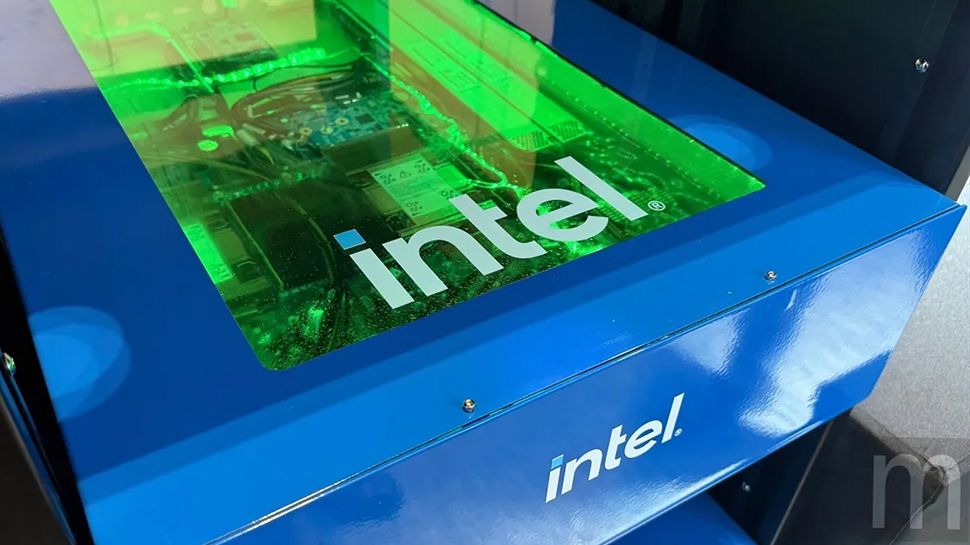
Intel is working on a cooling solution that can manage 1.5kW of heat, which could be used in Nvidia's GB300 superchip.
Intel has been showcasing its liquid cooling products in Taiwan.
Intel has decided to expand its liquid cooling technology to accommodate future NVIDIA artificial intelligence chips. The company has introduced its Superfluid cooling solution, capable of handling thermal loads of up to 1.5 kW per chip, which becomes crucial for maintaining the temperature of chips like NVIDIA's GB300 superchip and new server racks that will be unveiled by 2025.
During a recent event, NVIDIA showcased conceptual models of NVL576 racks based on Kyber, which will feature Rubin Ultra GPUs. According to Jensen Huang, co-founder and CEO of NVIDIA, these configurations could consume approximately 600 kW, and in the future, may even reach power demands at the megawatt level. Therefore, with the increase in energy requirements, advanced cooling technologies like Intel's will become increasingly necessary.
The Superfluid technology was introduced by Intel in 2023 and implements the injection of microbubbles to enhance coolant flow and efficiency in heat transfer. This innovation is inspired by a method used by Mitsubishi Heavy Industries, which uses bubbles generated under the hull of ships to reduce water resistance and improve propulsion efficiency. In the case of Superfluid cooling, bubbles are generated in the coolant, increasing flow speed and optimizing heat removal. This system also combines cold plate designs to enhance thermal conductivity and employs a non-conductive dielectric fluid to prevent damage to servers in the event of a leak, making it suitable for dense computing environments where traditional cooling methods are ineffective.
Recently, Intel presented its advancements at the 2025 Superfluid Advanced Cooling Technology Forum in Taiwan, in partnership with the Industrial Technology Research Institute. The event attracted over 500 participants and more than ten local suppliers, demonstrating strong industry interest. Taiwanese companies such as Maico, YuanShan, Kuenling, and Sun Max Tech showcased hardware designed to complement Intel's cooling system, which includes server racks, liquid-cooled chassis, and thermal components.
Additionally, Intel is investing in advanced materials to minimize corrosion and mechanical wear, as well as in designs based on liquid metal and electromagnetic pump systems, thus seeking to improve long-term durability and reduce maintenance costs for large-scale implementations.



